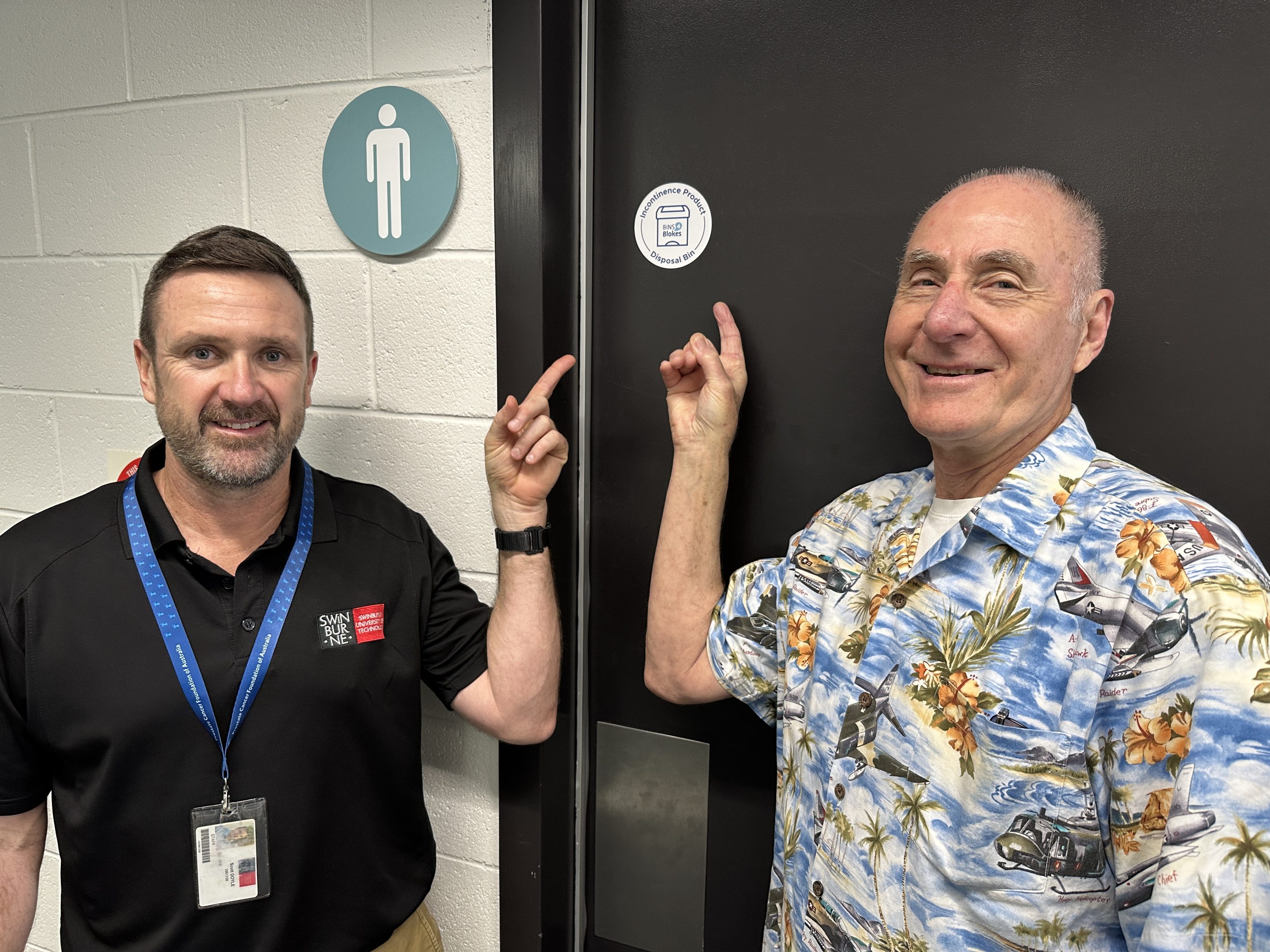BINS4Blokes – Speaking Up for Dignity: A Story of Change at Swinburne University of Technology When Scott Doyle from Swinburne University of Technology was diagnosed with prostate cancer, his attention turned to his treatment, including a radical prostatectomy that led to incontinence. This brought daily challenges, particularly the need for easy and consistent access to toilet facilities.
Through the Kingston Bayside Prostate Cancer Support Group, Scott came to recognise the importance of appropriate incontinence product disposal bins, not only for managing his condition, but also for regaining his confidence, dignity and ability to return to work and everyday activities. His experience highlights the simple yet powerful impact that access to the right facilities can have on quality of life. That’s where BINS4Blokes comes in, an initiative by Continence Health Australia, advocating for the installation of incontinence product disposal bins in male public toilets. The campaign also encourages men living with incontinence to reach out for support from trained nurse continence specialists through the National Continence Helpline on 1800 33 00 66.
When Scott returned to work, he noticed something he’d never had to consider beforethere were no incontinence product disposal bins in the male toilets. Living with incontinence had opened his eyes to an issue that he considers is rarely discussed. “It’s invisible,” Scott said. “Before my diagnosis, I had no idea how common male incontinence actually was.” Currently, 2.4 million men and boys in Australia live with some form of urinary or bowel incontinence. Without access to appropriate toilet facilities, many are forced into social isolation or early withdrawal from the workforce, often leading to mental health and wellbeing challenges. In his first few weeks back at work, Scott experienced two episodes of incontinence. Without access to a discreet way to dispose of used continence products, he described the experience as “awkward, embarrassing, and isolating — a situation that was entirely unnecessary.” Scott reached out to the Swinburne Facilities Team to highlight this important issue. He’s grateful that they listened.
By supporting the BINS4Blokes initiative, Swinburne demonstrates its strong commitment to social impact, championing dignity, inclusion and wellbeing for everyone living with incontinence. As a leader in this space, Swinburne is setting an example for other universities, working to break the silence around incontinence and promote equitable access to hygiene facilities for all, regardless of gender.
Their message is clear and compelling: “You are seen, and your dignity matters.” Swinburne has installed incontinence product disposal bins across two of its campuses. To enhance access and awareness, the university has formally announced the initiative via its staff forum, linked the facilities to the Australian Government’s National Public Toilet Map, and promoted the National Continence Helpline to encourage helpseeking behaviour among men living with incontinence. These actions reflect Swinburne’s strong support of the BINS4Blokes initiative. It also reinforces the university’s broader commitment to fostering a respectful, inclusive environment, one that is free from stigma and discrimination.
Since launching BINS4Blokes, Scott has received enthusiastic support from the Swinburne community and expects that momentum to continue as awareness grows. Universities and education providers committed to promoting dignity and inclusion can learn more at BINS4Blokes.org.au. Individuals seeking free, confidential help for incontinence from trained continence nurse specialists can contact the National Continence Helpline on 1800 33 00 66.


0 Comments